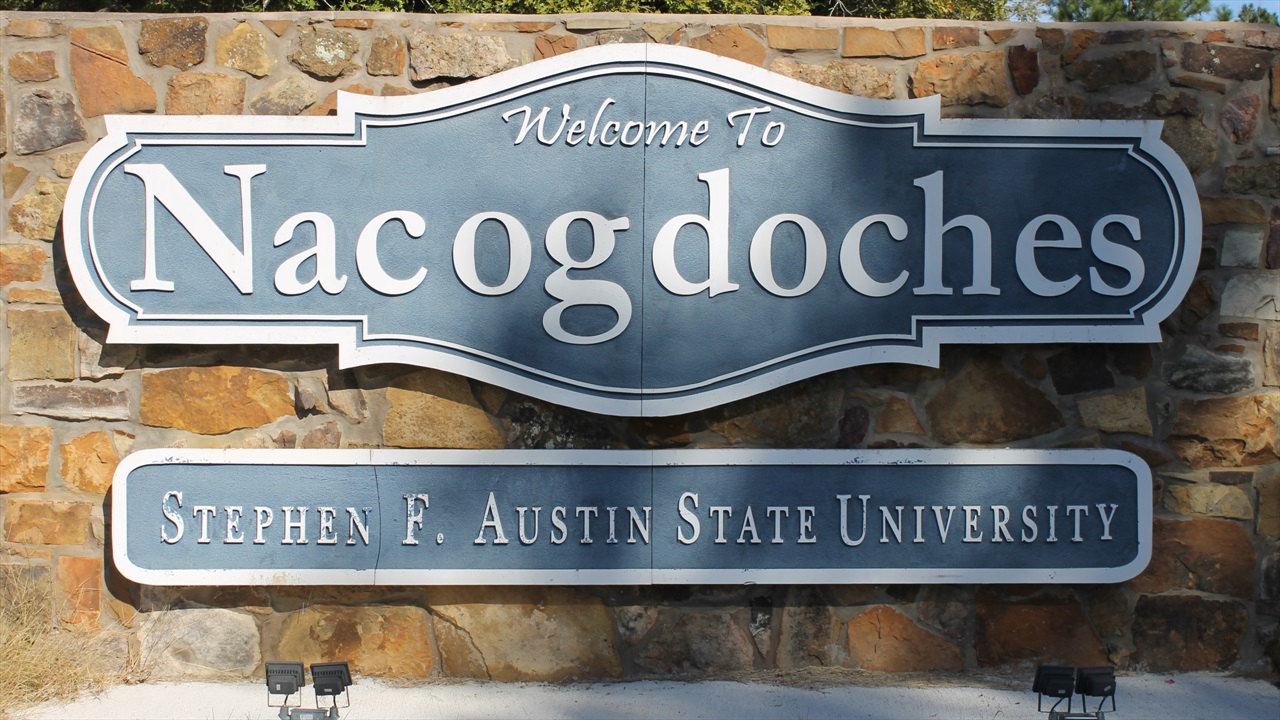Talk to nearly anyone in the town of Nacogdoches, Texas and they'll all tell you the same thing: it is a special, albeit somewhat frustrating, place to live.
Planted in the nethermost crook of East Texas, surrounded by rural communities largely immersed in deep south culture, lies a sprawling college town full of transplants. It has been my home for less than four years and that I feel like a seasoned resident is telling - it is merely a pit stop in the lives of many of its inhabitants somewhere on the road to professional maturity.
Dallas and Houston are the primary feeders, at least as far as the student population is concerned, each year sending thousands of city kids to the "oldest town in Texas" as they look for a more genuine college experience in a world rapidly shifting toward commuter schools.
Clashes between deeply conservative long-time residents and the just-passing-through student and young professional population are often seen, hiding just below the surface, in local headlines. Casualties of such feuds have included
Applebees, who lost a 2013 battle to relax the city's ordinance on liquor sales after midnight in what was seen as a symbolic fight in some circles for the identity of Nacogdoches.
This town, in all its
beautiful, gruesome, contentious glory, shouldn't lose sight of the fact
that coexistence is sometimes a virtue gained through strife.
Locals and long-time occupants have frequently fought the notion that the town should fully embrace its college town identity and cater toward the more temporary residents. The university and student population counters by arguing the community would
be largely unimportant, mirroring nearby municipalities like Crockett,
sans a public university. Although the 12 thousand+ students don't stay for long, they inject a significant
economic contribution to locals and are replaced by others with comparable values when they depart.
As is expected in this part of the state, Nacogdoches County is solid Republican territory. In the 2016 Presidential Election,
Donald Trump won 65.8% of the vote, a notably lower percentage than neighboring counties (nearby Sabine County went to the GOP nominee by 86%, for example), but still a clear conservative majority among the voting population.
Student protesters, mirroring similar efforts nationally, rallied in the days that followed that election. One local resident sprayed the group with exhaust smoke (
while his friend video taped it) and,
according to KTRE, a city worker was suspended after appearing to deliberately open a fire hydrant near the gathering. Meanwhile, SFA's College Republicans are a frequent presence on and off campus, expressing clearly that young does not automatically mean liberal. A local political party leader described in detail to my wife and I at the recent Texas Blueberry Festival the times her home and automobiles have been vandalized by those who disagree with the candidates she endorses.
Some in the town have shamelessly crossed boundaries into unadulterated racism. "That black, silly looking gal, that shaves her head, and that nappy bunch of dreadlocks she's wearing all the time," describes pastor Dennis Anderson of Appleby Baptist Church
in a recent recorded sermon on the church's website, as he less-than-subtly faults America's blackness for a host of complaints. The topic of this sermon? "When black men were in power."
To be clear, Anderson's church, a topic of clear controversy, does not fairly represent the local population.
Still, an organization inside the Nacogdoches city limits that suggests interracial marriage is a violation of God's "boundaries," that "descendants of Ham" (read: black people) are cursed, and that "the New Testament does not condemn slavery," is a sobering reminder that even in a diverse community, hate in its most despicable forms, remains in close proximity.
The First Amendment and its degree of protection is sometimes debated, but in an area with such a varying socioeconomic population, it is hard at work in Nacogdoches - even when it must defend the rights of the indefensible.
As is so frequently found throughout America (and Texas in particular), partisans surround themselves with the likeminded. Conflict between various points of view, even between the moderate, make us generally uncomfortable. In that way, Nacogdoches is not a comfortable town.
At the end of the day, a city with radically assorted points of view, especially in a college town, should be seen as an asset and not a liability. It's sometimes easy for America's white population to pretend racism is a thing of the past while sitting in comfortable Dallas suburbia. Likewise, the "deplorables" stereotype proves shallow and unjust when hospitable and kind country conservatives show themselves to be more than the assigned pigeonhole.
"Nasty Nac," as it is affectionately called, displays the best and the worst of many demographics. It is enough to thoroughly aggravate anyone who fails to appreciate a first-hand encounter with an opposing ideology they may not see much of again in a life boxed in by agreeable peers.
And sometimes, the displays of unity are equally emphatic. There was near universal outrage when a 2014 Ku Klux Klan rally in Nacogdoches became public and a number of
"diversity rallies" around town were organized to counter it. Austin Heights Baptist Church, a predominately white fellowship, and Zion Hill Baptist Church, predominately black,
joined forces in solidarity against prejudice as the shooting of 18-year-old Michael Brown in Ferguson, Missouri sparked national unrest in 2014.
This is a sports-themed website and, as you can tell, this is not a sports-themed article. It is however, I believe, important enough to defy genres. This town, in all its beautiful, gruesome, contentious glory, shouldn't lose sight of the fact that coexistence is sometimes a virtue gained through strife. Uniting against hate and embracing those of differing political, religious and social stances should be seen as a unique opportunity offered by the natural collision of big city students in the midst of a rural population.
If you're afraid of defending your worldview, of debating alternative ideas, or questioning your own, even occasionally facing off with sheer animosity, you are probably best served elsewhere for your higher education needs. But if you're looking for a chance to run face-first into living, breathing examples of your ideological counterparts, there may not be a more striking pileup than what occurs when East Texas, Houston, and Dallas all come together in a single town of 33 thousand residents.
It's a crazy place. Crazy awesome, for the most part, if you ask me.







